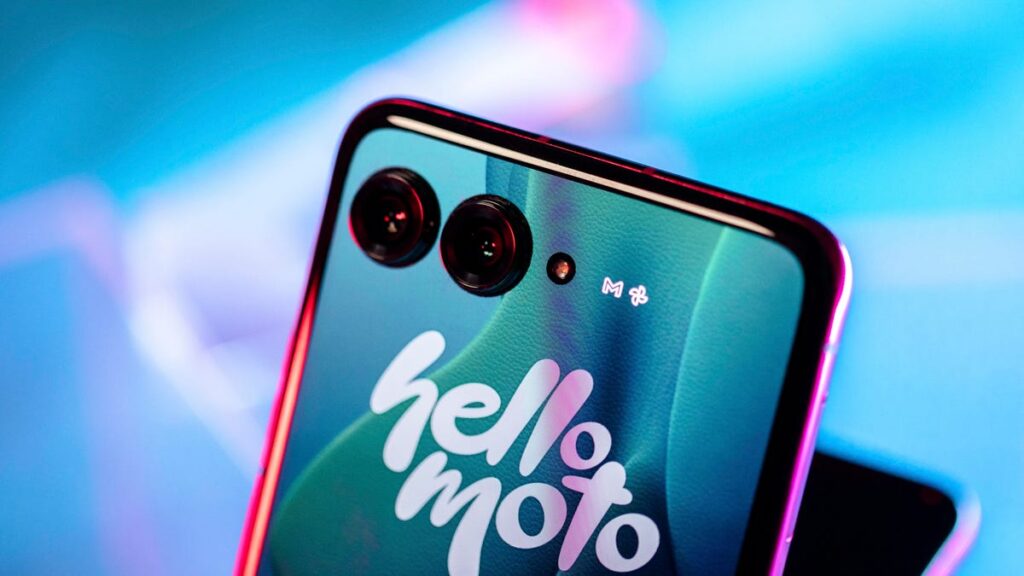Motorola wants to make it so that you can ask your phone to do almost anything with a simple request. That’s the vision the smartphone-maker laid out at parent company Lenovo’s Tech World ’24 conference on Tuesday, introducing a new proof of concept that involves using AI to carry out real-world tasks. Imagine, for example, ordering a cup of coffee with a simple command without having to specify the details by manually swiping and tapping through an app.
Motorola’s idea is just the latest effort by a technology company to change the way we operate our phones through AI. Google upgraded its Gemini digital helper with the ability to answer questions about content on screen and interact with other apps. Apple will roll out Apple Intelligence, its suite of AI features, which includes a revamped version of Siri, to the iPhone 16 lineup and iPhone 15 Pro this month.
Motorola’s concept, though, is a bit different from what Apple and Google are doing. Motorola is experimenting with what it calls a Large Action Model, or LAM, which understands your environment and should be able to respond to queries by taking actions rather than just producing text or image-based responses.
Read more: Don’t Buy a New Phone Just for AI. At Least Not Yet

Watch this: Google Lens vs. Apple Visual Intelligence: Has Google Already Won?
It sounds similar to the tech Rabbit says it uses in its R1 handheld gadget, although that product was widely panned by critics for not meeting expectations. Startup Brain.AI has also showcased similar technology on a phone that can carry out tasks such as booking a flight with just a command instead of multiple taps and swipes.
Motorola cites examples like these when explaining the goal behind its LAM technology. That includes being able to order an iced Americano coffee and having the company’s AI automatically find the nearest coffee shop and alert you when it’s ready for pickup. In a video demonstrating the concept, a woman verbally ordered the coffee by speaking into her wireless earbuds, which enabled the LAM to carry out the action on her phone.

The company also mentioned the technology could be used for tasks such as booking rides and making online reservations, and it eventually sees it being useful for automating daily tasks like setting alarms and choosing playlists. For example, Motorola’s press release mentions being able to just tell Uber where you want to go, while Motorola’s AI system uses your location to handle the rest of the task on your behalf. The more you use it, the better it should become at understanding your preferences, Motorola says.
The concept is part of a broader shift towards making phones and other smart devices more proactive.
“For the most part, the interaction, the process is still very manual,” Amy Webb, a quantitative futurist and founder and CEO of the Future Today Institute, said in a previous CNET interview in reference to today’s phones. “It requires you to look at a screen and type some stuff in.”

Motorola’s proof of concept would let you order a coffee just by asking, without having to specify a location or payment method.
But this technology is just a proof of concept for now, so there’s no telling when or if it will arrive on a future Motorola phone. In the meantime, however, Motorola is making progress with other AI features.
Previously announced Moto AI software tools such as “Catch me up” for providing notification summaries and “Remember this” for saving information on screen are now in the beta stage, with invites expanding throughout the year. Motorola’s Smart Connect platform for more easily unifying phones, PCs and tablets is also getting an update that lets you control devices through natural language and share personal data across devices.
Motorola’s announcement is another sign that tech giants are trying to reinvent smartphone software by infusing it with AI. But smartphone giants Apple and Samsung, which collectively make up roughly 36% of the global market according to the International Data Corporation, are also aggressively pursuing their own AI ambitions through partnerships with OpenAI and Google respectively. That means smaller players in the market like Motorola will have to offer really compelling features and services to stand out.

Despite the hype and attention around AI, there still has yet to be a smartphone feature that’s powerful enough to convince shoppers to upgrade their phones. In fact, a quarter of respondents in a recent CNET survey in partnership with YouGov said they don’t find AI features helpful and don’t want to see more integrated into their phones.
But should concepts like Motorola’s come to fruition, perhaps that could change. Having an assistant that can accomplish tasks on your behalf could bring meaningful value, compared to many of the generative AI tools that have emerged over the last year, which are largely aimed at fairly niche use cases like photo editing, language translation and image creation. That’s if it works as intended, of course.
